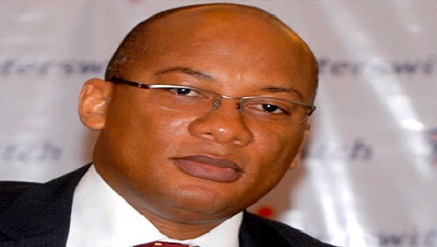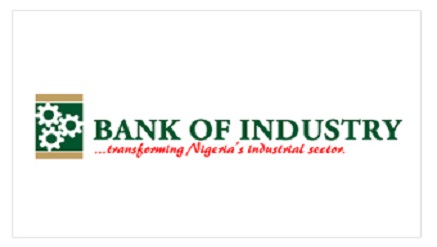E-Financial
Verve Looks to Future of African Business with New Campaign

Verve International, the leading homegrown pan-African payment card brand, has launched ‘Verve, Truly African’, a new platform to celebrate Africa’s heritage and promote homegrown entrepreneurs and businesses.
The campaign kicked-off today at the Protea Hotel in Lagos, Nigeria, and will over the next 3 months celebrate everything that makes Africa great, and give Africans the opportunity to showcase to the world their unique talent, skills and ideas.
Events to look-out for include: Verve sponsorship of the African Magic Movies Choice Awards (AMVCA), the launch of a new TV commercial, and a social media campaign that asks Africans to tell the world about their aspirations and what it means to be African today.
Charles Ifedi, chief executive officer, Verve International, said: “At Verve our vision is to create a totally interconnected continent where all Africans can feel the benefit and take advantage of rapid economic expansion and increasing prosperity. We will do this by providing world-class e-payment products and services that work seamlessly across borders, relentlessly pursuing a truly pan-African offering.
“We believe that a brighter future for Africa will be built by the ingenuity and resourcefulness of Africans themselves. More and more African entrepreneurs and homegrown businesses are showing the world that they have the skills, creativity, and determination to take on some of the biggest international businesses. Through this campaign we will be giving Africans everywhere the opportunity to showcase their unique talent.”
Cherry Eromosele, chief marketing officer, Interswitch said: “We are thrilled to unveil our new ‘Truly African’ campaign to celebrate everything that makes Africa a vibrant and exciting place to be right now. Africans are using their heritage and identity to build businesses that are truly African in their outlook and provide services highly tailored to African consumers.
“At Verve we have created a brand that represents the values and aspirations of Africans everywhere, and this is the essence of this campaign: to capture and celebrate the unique attributes of Africans.
“As the homegrown payment card that supports millions of direct and indirect jobs across the continent, every transaction made with a Verve card is an investment in Africa’s future.”
Verve is an African payment solutions company. Part of the company’s offer is a pan-African chip + PIN payment card. The Verve card is the leading payment card brand in Nigeria, with over 14 million cards in active use, significantly more than any other provider.
Using a system designed, built and maintained by Africans, Verve offers African consumers products highly tailored to their needs. Verve has pioneered the expansion of modern financial services into both rural and urban areas, connecting hundreds of millions of African consumers to retailers across Africa and around the world through modern e-payment platforms.
Verve continues to invest in rolling-out its services across the continent and building capacity, driving the adoption of e-payment services to help African countries develop modern and thriving economies. In doing so, help all Africans to feel the benefit of strong growth.
L-R, Consumer Segments Marketing Manager, Interswitch, Eny ioma Anaba, Group Head, Issuer Management, Interswitch, Ugo Bassi and Country Manager, Verve – Nigeria, Oremeyi Akah d uring the Verve Truly African Campaign launch.
E-Financial
CBN Expresses Concern Over Foreign Investments in Nigeria Fintechs

The Central Bank of Nigeria in its 2025 Fintech Policy Insight Report, has raised concern over Nigeria’s fintech sector heavily dependent on foreign investment, exposing it to swings in global markets.

The report said the sector has shown resilience despite global economic pressures, but warned that reliance on external capital leaves it vulnerable to market fluctuations.
It would be recalled that startups in the country raised $520m in equity funding in 2024, down from about $747m in 2019, when Nigeria captured roughly 37 per cent of all African startup investment.
This performance, amid significant global macroeconomic gyrations, underscores Nigeria’s position as a key hub for financial innovation. The sharp rise in interest rates in advanced economies during 2022 contributed to a slowdown in venture capital funding.
“These dynamics highlight the importance of developing domestic funding avenues, such as leveraging Nigeria’s capital markets, to reduce currency risk and sustain fintech growth,” the apex bank stated.
Olayemi Cardoso, CBN Governor, said Nigeria is undergoing a rapid and significant financial evolution. Over the past decade, the nation’s fintech landscape has grown from a handful of startups into one of Africa’s most vibrant innovation ecosystems.
“Even amid global economic headwinds, Nigerian fintech firms continued to attract investment and drive change. Today, with improved stability of our currency and domestic economy, it is clearer than ever that financial innovation can advance inclusion at scale,” the executive commented on the report.
In addition to funding, the central bank underscored Nigeria’s continued leadership in digital financial infrastructure. More than 25 per cent of all electronic transactions in Africa’s most populous nation are processed via real-time payment channels, with close to 11 billion transactions processed in 2024, up from five billion in 2022. The report described Nigeria’s instant payments platform, NIBSS NIP, as among the most mature and widely adopted globally.
The report also mentioned the need to strengthen system integrity and reputation, pointing to compliance reforms, anti-money laundering supervision, and consumer protection measures as key priorities for sustaining investor confidence.
By focusing on domestic funding, regulatory modernisation, and innovation infrastructure, the CBN aims to position Nigeria not only as a fintech front-runner but also as a rule-setter whose regulatory lessons are relevant to peer emerging and high-growth economies globally, the central bank said.
Stakeholders surveyed by the CBN also cited compliance costs as a significant challenge to innovation. According to the report, 87.5 per cent of respondents said that the cost of meeting regulatory and risk requirements significantly impacts their capacity to innovate, while delays in product approvals and regulatory timelines also remain major bottlenecks.
The report noted that 62.5 per cent of fintech firms plan to expand regionally, and there is strong support for regulatory pass-porting frameworks to enable compliant expansion into other African markets. However, the CBN warns that such cross-border growth requires a stable funding base and coordinated regulation.
E-Financial
UBA’s Easy and Instant Account Opening Thrills Returnee

After a few years abroad, I returned to Nigeria and faced a dilemma. Let me tell you all about it.

UBA
A few days ago, I was dragging my luggage through Murtala Muhammed International Airport. Everything felt bright and beautiful. Not necessarily in aesthetics, but in the vibrant colours, sounds, and energy all around. After three intensive years in the UK, I was finally back home. Ready for the hustle and bustle of Lagos life, and yes, the comfort of my parents’ home.
The plan was simple. Settle down and get my life on track. I’d sorted the job, and I had my person. But then came my dilemma. Money!. This doesn’t mean I was short of it or had too much of it. The real issue is where to actually keep and manage it in this country with daily dramatic happenings. With just two weeks left before I resumed at my new workplace, I had no time for long queues, endless paperwork, or the classic “Nigeria bank stress.” So, I needed an account, and I needed it fast.
So I turned to my best friend, Google, and typed, “Instant account opening in Nigeria.”
In less than a second, I was redirected to the United Bank for Africa instant account opening portal. A few taps later, and I had a fully functional account. Just like that. I could receive my funds, transfer my funds, and start building my financial life here again.
In less than a second, I was redirected to the United Bank for Africa instant account opening portal. A few taps later, and I had a fully functional account. Just like that. I could receive my funds, transfer my funds, and start building my financial life here again. Talk about ease, and this beautiful experience truly exemplified that definition
I was genuinely amazed. It felt too easy, almost suspiciously easy. But it was real, I mean, really soft like they were just thinking all about me while developing this new feature.
If you’re like me and pressed for time, avoiding unnecessary stress, or just ready to sort your finances without the hassle, consider this your sign.
UBA’s instant account opening is a game-changer. No queues to cut into your precious time. Just you and your phone, minutes away from being banked.
Get started here: https://aop.ubagroup.com
Trust me, if I could do it between unpacking and settling in, you can do it too. Your future self will thank you.
E-Financial
BOI Secures CBN Nod for Sharia Banking, Unlocks Ethical Funding Boom

Bank of Industry (BOI) has received Central Bank of Nigeria (CBN) approval to launch a Non-Interest Banking (NIB) Window, expanding ethical financing for underserved businesses nationwide.

BOI
The move positions BOI to mobilise Sharia-compliant funds, finance assets and raw materials without interest, and target MSMEs plus high-impact sectors previously sidelined by conventional loans.
Divisional Head of Public Relations, Theodora Amechi, said the window aligns BOI with social goals, boosting real economy support and sustainable industrial growth.
MD/CEO Dr. Olasupo Olusi hailed it as a “pivotal moment,” enabling the bank to serve faith-sensitive enterprises shunning riba-based loans.
Analysts see it as CBN’s vote of confidence in BOI’s governance, set to spur innovation and inclusive financing for Nigeria’s ethical business segments.
Established in 1959 as Nigeria’s top Development Finance Institution, BOI now strengthens its drive for broad-based economic transformation.

 General News2 days ago
General News2 days agoGlobacom Donates ₦1Bn to Lagos State Security Trust Fund

 Telecom2 days ago
Telecom2 days agoAirtel Nigeria Commits to Upgrade of its Network Infrastructure for Improved Quality of Service

 E-Business2 days ago
E-Business2 days agoPwC Reveals AI Scaling Gap Slows Africa’s Digital Transformation

 News2 days ago
News2 days agoCIoD, NIPSS Partner to Deepen Governance, Leadership Standards

 News2 days ago
News2 days agoNRS Chairman Outlines Ways Nigeria can Move from Potential to Economic Prosperity

 E-Financial2 days ago
E-Financial2 days agoEcobank Profit Jumps 29 Percent to N950Bn

 General News2 days ago
General News2 days agoWIEG to host Nigeria’s first International Investment Summit in Lagos

 News2 days ago
News2 days agoOrya, Ex-NEXIM MD Jailed 490 Years for N2.4Bn Fraud



























